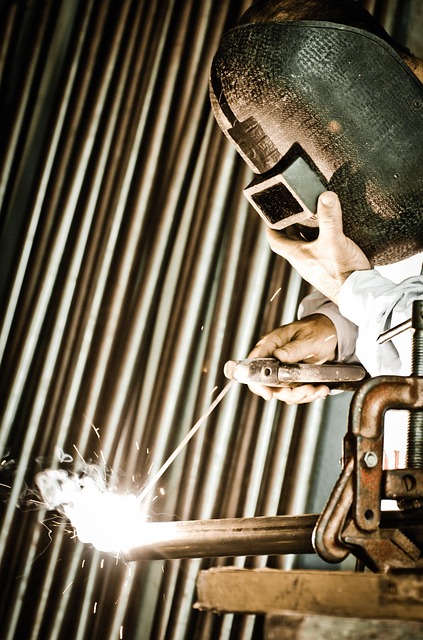Careers with a Welding Company in Australia: Reliable Work Nationwide
The welding industry in Australia offers stable and rewarding career opportunities across the country. With infrastructure projects, mining operations, and manufacturing facilities requiring skilled welders, qualified professionals can find consistent employment with competitive compensation. Understanding what welding companies expect and what the daily work entails can help prospective welders prepare for a successful career in this essential trade.

Welding represents one of Australia’s most enduring and essential skilled trades, providing stable career opportunities across metropolitan centers and regional areas alike. The industry serves as a backbone for Australia’s infrastructure development, resource sector, and manufacturing capabilities. Welding professionals find themselves in demand nationwide, from the shipyards of Western Australia to construction projects in New South Wales and Queensland’s mining operations. This widespread need for qualified welders creates a landscape of reliable employment options for those with the right skills and qualifications.
What Do Australian Welding Employers Expect From Candidates?
Welding companies across Australia typically seek candidates with specific qualifications and certifications that demonstrate competency and adherence to safety standards. Most employers require completion of Certificate III in Engineering - Fabrication Trade or similar qualifications from recognized training organizations. Beyond formal education, employers value candidates who possess current welding tickets for specific processes like MIG, TIG, or stick welding, along with knowledge of Australian Standards for structural steel welding.
Employers also place significant emphasis on safety consciousness and physical fitness, as welding work often involves working in challenging environments. The ability to read and interpret technical drawings ranks high on employer requirements lists, alongside experience with quality control procedures. Many companies seek candidates demonstrating problem-solving abilities and mechanical aptitude, as welders frequently encounter situations requiring quick thinking and technical adaptability.
Daily Responsibilities of Professional Welders in Australia
The day-to-day work of welders varies significantly depending on the industry and specific role, but certain core responsibilities remain consistent. Most welders begin their day with safety briefings and equipment inspections to ensure all tools and protective gear meet standards. The bulk of a welder’s workday involves preparing materials, positioning them according to specifications, and performing various welding processes to join metal components together according to project requirements.
Quality control represents another significant aspect of a welder’s daily responsibilities. This includes conducting visual inspections of completed welds, performing non-destructive testing when required, and documenting work according to company procedures. Many welders also maintain detailed logs of materials used, techniques applied, and any challenges encountered during fabrication processes. Depending on the workplace, welders may also be responsible for basic maintenance of welding equipment, troubleshooting technical issues, and collaborating with engineers or project managers on complex fabrication tasks.
Why Welding Is Experiencing Growth as a Career Path
The welding profession in Australia is experiencing notable growth due to several converging factors. Major infrastructure projects across the country, including transportation networks, energy facilities, and urban development, create consistent demand for skilled welders. The Australian government’s focus on domestic manufacturing capability has further strengthened employment prospects in fabrication shops and manufacturing facilities that require welding expertise.
Australia’s aging workforce presents another growth driver, as many experienced welders approach retirement age, creating opportunities for new professionals to enter the field. The resources sector, despite cyclical fluctuations, continues to provide substantial employment for welders in mining regions and related industries. Additionally, technological advancements in welding processes, while automating some aspects of the work, have created new specializations requiring skilled operators with advanced technical knowledge.
Training and Certification Requirements for Australian Welders
Becoming a qualified welder in Australia typically begins with formal education through TAFE institutions or registered training organizations offering Certificate III in Engineering - Fabrication Trade. This qualification typically takes 3-4 years to complete when undertaken as an apprenticeship. During this period, students learn fundamental welding techniques, metallurgy principles, blueprint reading, and safety protocols essential to the profession.
Beyond the initial qualification, specialized welding certifications significantly enhance employment prospects. These include process-specific tickets for MIG, TIG, and stick welding, along with certifications for specialized applications like pressure vessel welding or structural steel work. Many employers also value additional certifications in occupational health and safety, confined space work, or working at heights. Continuing professional development remains important throughout a welder’s career, as new technologies and techniques emerge regularly in this evolving field.
Regional Opportunities and Industry Variations for Welders
Welding opportunities vary considerably across Australia’s diverse regions and industries. Western Australia and Queensland offer substantial employment in mining and resources, with FIFO (fly-in, fly-out) arrangements common for remote sites. These positions often provide premium compensation but require adaptation to challenging conditions and extended rosters. Victoria and South Australia maintain strong manufacturing sectors where welders find work in automotive, defense, and general fabrication operations.
New South Wales and the Australian Capital Territory present opportunities in construction and infrastructure development, while Tasmania offers specialized roles in shipbuilding and marine fabrication. Beyond geographic differences, industry specializations also influence a welder’s daily experience and compensation. Defense contractors, for instance, often require security clearances and specialized certifications but provide stable, long-term employment. Similarly, the renewable energy sector has emerged as a growing employer of welders for wind turbine and solar infrastructure fabrication, offering opportunities to contribute to Australia’s sustainable energy transition.
Career Advancement and Specialization Opportunities
Experienced welders in Australia have numerous pathways for career advancement beyond entry-level positions. Many progress to specialized roles such as welding inspectors, who verify compliance with standards and specifications across multiple projects. Others advance to welding supervisors or foremen, overseeing teams and coordinating complex fabrication operations. With additional education in engineering principles, some welders transition to roles as welding engineers, developing procedures and solving technical challenges.
Entrepreneurial welders often establish their own contracting businesses or specialized fabrication shops after gaining sufficient experience and industry connections. The defense and aerospace sectors offer particularly rewarding specialization opportunities, though these typically require additional certifications and security clearances. For those interested in sharing their knowledge, experienced welders can pursue careers as trainers or assessors at technical colleges and training organizations, helping to develop the next generation of welding professionals while enjoying more regular working hours than production environments typically provide.




